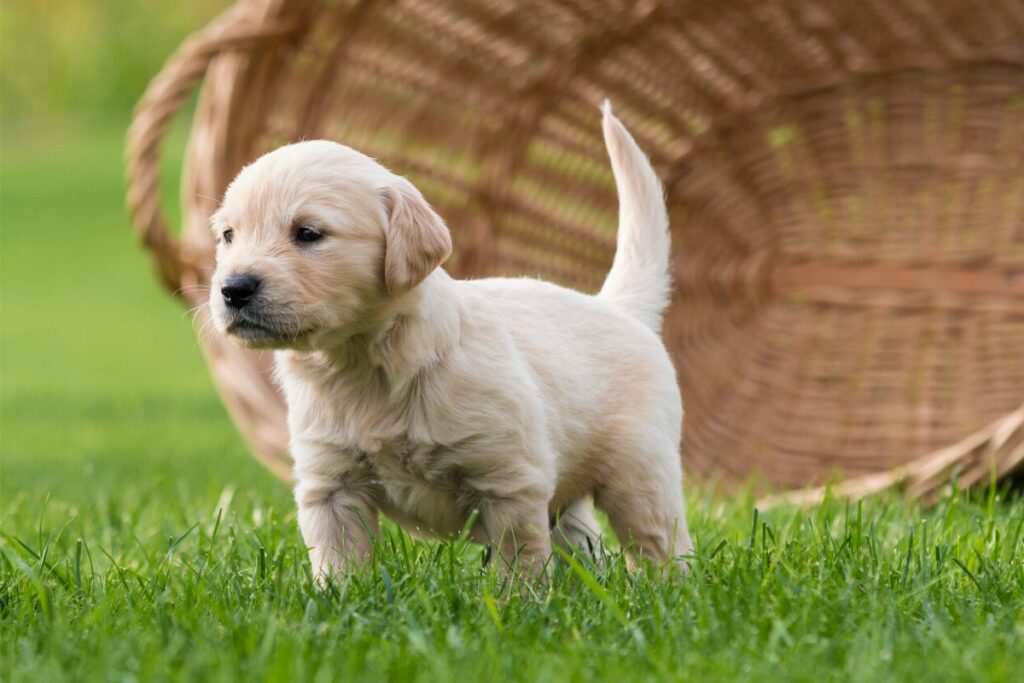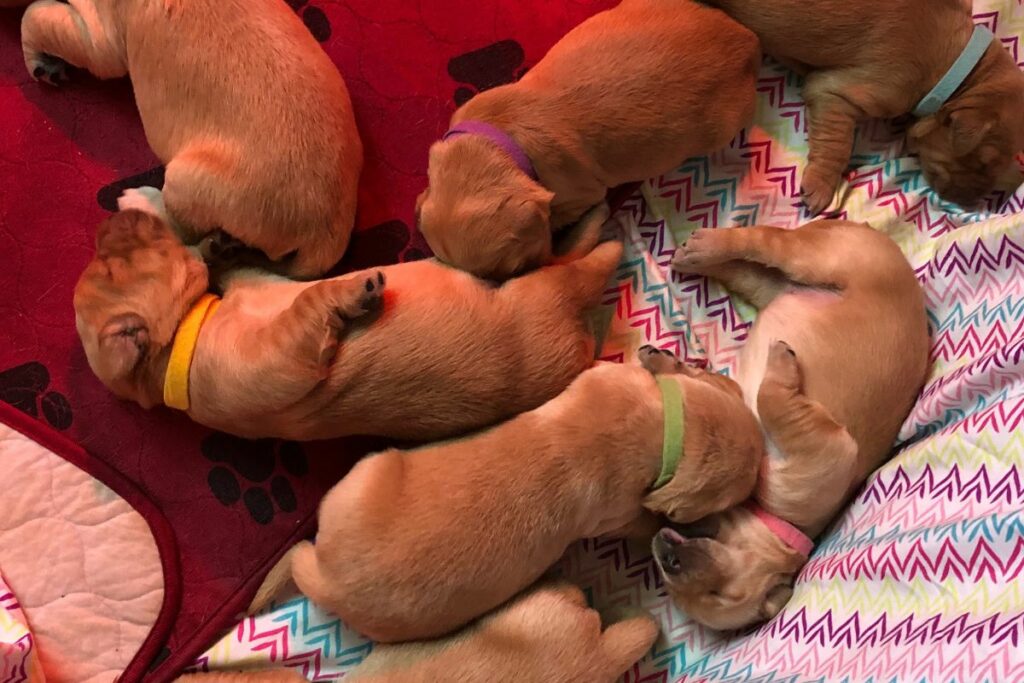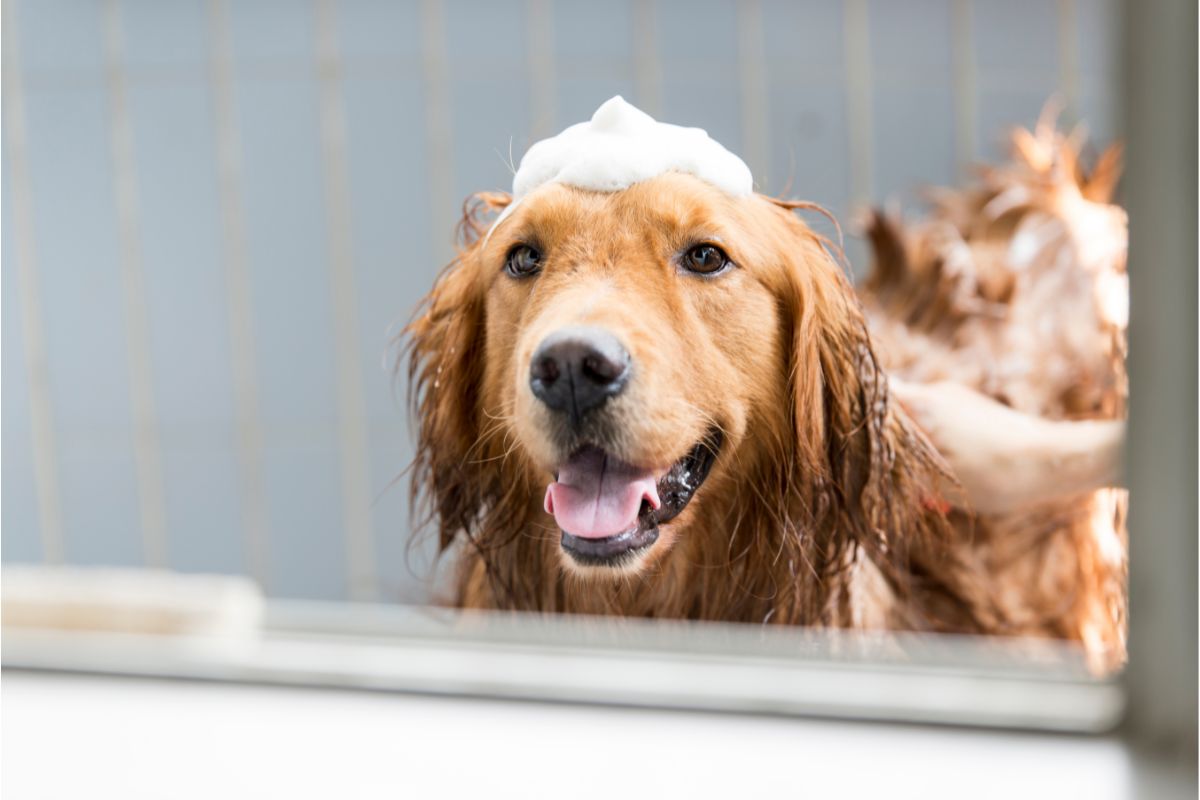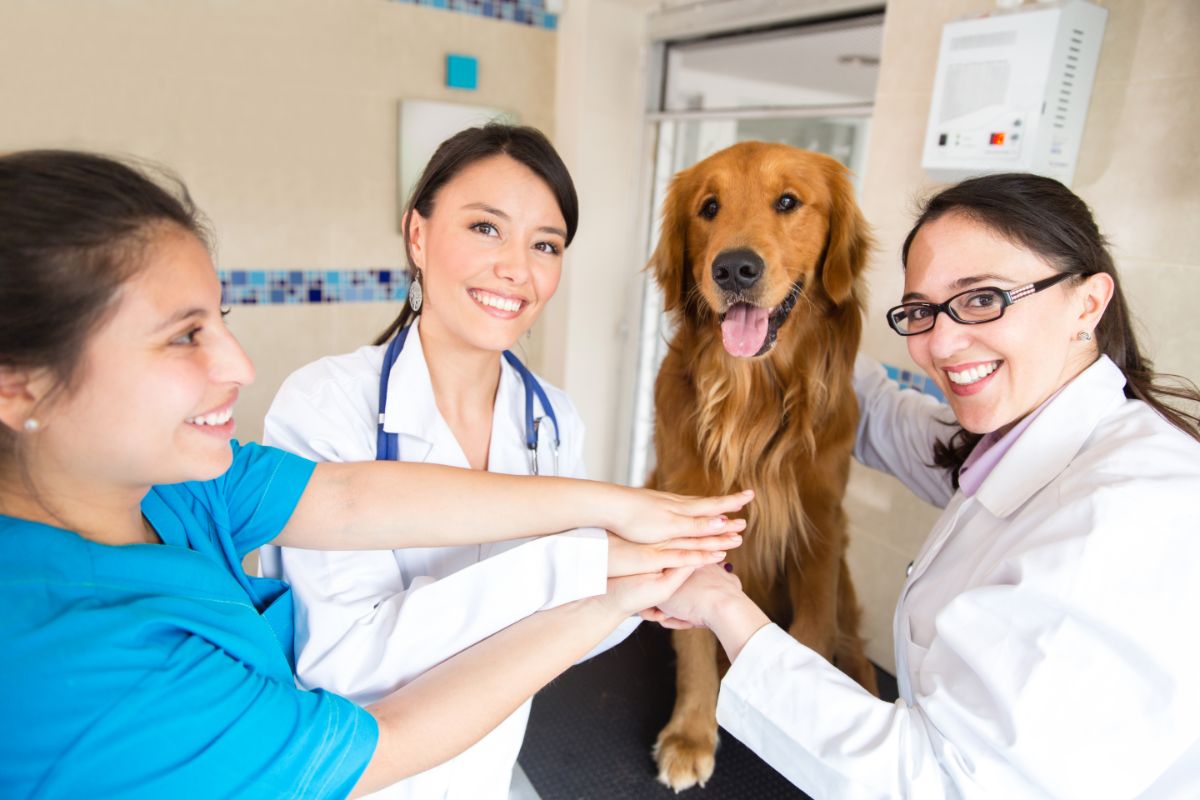Welcoming a newborn puppy into your life can be a heartwarming experience, but let’s face it: it comes with its own set of challenges.
From adorable tiny paws to midnight yowls, the first few weeks can feel like a whirlwind. Fear not, though – we’re here to guide you through the ins and outs of caring for your new sweet furball.
In this comprehensive guide, we’ll cover everything from creating a cozy den to tackling those inevitable potty accidents.
Caring for a newborn puppy up to 8 weeks when they’re ready to be adopted out can be very difficult, but don’t worry.

In this article, we’ll cover everything that you need to know to take the very best care of your newborn puppy.
From physical changes to behavioral, this article will explore all the different things that are important to know as you become the proud pet parent to a brand new bundle of fluff.
Whelping Stage (Birth – 2 Weeks)
This first stage takes place before the puppies are born and puts Mama Dog in center stage.
Your role at this stage is to provide a serene, stress-free environment. When you know your dog is going into labor, you will need to set up a cozy whelping box in a quiet corner, away from the general hustle and bustle of your home’s everyday life.
Fill this corner with soft blankets and a heat source to keep those tiny pups toasty once they arrive.
Keep a watchful eye on the birthing process, but don’t be alarmed if it feels like hours of waiting – it’s all part of the miracle of life. Once the newborn puppy golden retrievers arrive, you can trust Mama to work her magic.
She’ll handle the feeding and cleaning duties. All you have to do is provide a constant supply of fresh water, offer gentle encouragement, and be ready to contact a vet if you think anything might be going wrong.
For the first two weeks, your pups won’t be doing much besides sleeping and eating, so your job will mostly involve keeping their area clean and comfortable and making sure that Mama is getting enough food, water, and space when she needs it.
Changes In Behavior
Expect the unexpected! Mama dog might display heightened protective instincts, becoming more vigilant and sometimes anxious. It’s not uncommon for her to be extra cautious around her puppies, ensuring their safety in this delicate phase.
As for the puppies, they won’t be getting up too much, but it’s important to keep a very close eye on them, particularly over the first couple of days.
Changes In The Body
Mama dog’s body is working overtime to care for her litter. She might experience changes in appetite, possibly eating smaller, more frequent meals.
Nursing takes a toll, so make sure she has access to a nutritious diet to replenish her energy. The puppies, at this point, will have closed eyes and only really move to be closer to their moms.
You may also like: How to bottlefeed puppies.
Weaning Stage (2 – 4 Weeks)
Now, let’s talk about the weaning stage – a crucial part of your pup’s development. At this point, your pups will be starting to open their eyes and take their first adorably wobbly steps.
Just like toddlers transitioning to solid food, puppies go through their own version. Around three to four weeks of age, your little buddies are ready to step away from their mom’s milk and onto more solid foods.
You can start to introduce high-quality puppy food that has been softened with warm water to make the shift smoother.
It’s a messy affair. Expect a lot of nose-dives into the food bowl, bowls tipped over, and food ending up all over the place. However, that’s all part of the charm. Keep an eye on their reaction to different flavors and textures; you might witness some hilarious food critiques.
Gradually decrease the liquid content, and, voila, you’ve successfully navigated the weaning stage.
At the same time, your puppies will begin exploring their surroundings more and start to engage in a little bit of play with each other – watch to make sure that you keep their area clean and free of any hazards.
At this point, you’ll also want to be handling the pups often to get them used to this kind of interaction.
Changes In Behavior
As your puppy transitions from solely nursing to exploring solid foods, expect some behavioral shifts, mostly that they’ll start to have a personality.
Fido might show a keen interest in his food bowl, becoming a mini foodie.
On the flip side, you might notice a bit of fussiness or confusion as he navigates this culinary frontier. Patience is key during this phase.
Changes In The Body
Physically, you’ll observe a shift in your puppy’s energy levels and weight. Increased vitality is a positive sign that he’s adapting well to his new diet.
At this point, your puppy will be opening their eyes, taking their first steps, and finding their voices.
Further reading: Golden pups week-by-week.

Training And Socialization Stage (4 – 8 Weeks)
By the time you’re on top of feeding and cuddling, it’ll be time to dive into the next step: training and socialization.
Picture this stage as your puppy’s equivalent of kindergarten – essential for laying a solid foundation for their future behavior, but mostly about having fun.
Start with simple commands like “sit” and “stay,” but don’t expect too much and be patient; Rome wasn’t built in a day, and neither is a perfectly trained pup.
Consistency is key, so practice these commands with your puppy or puppies for a set amount of time every day. Most animals thrive on routine, so having a schedule for your training sessions is more likely to have positive results.
Equally important is socialization. Introduce your puppy to various environments, people, and other dogs.
During this time, your puppies will be able to get their vaccines, which will make it safe for them to start having play dates with other dogs. This helps to build confidence and ensures that they grow up to be well-adjusted, sociable companions.
Don’t be afraid to let them explore, sniff, and meet new furry friends; it’s all part of the learning process. And remember, positive reinforcement works wonders. Shower them with praise and treats when they behave well – it’s like giving them a gold star in puppy school.
It’s important to keep in mind that every puppy is unique and is going to progress differently. Even if you raise a litter of puppies on the same routine, they can grow into entirely different dogs with their own personalities.
Celebrate the small victories, and don’t be discouraged by the occasional hiccup. With time, patience, and a whole lot of love, you’ll be well on your way to raising a happy, well-behaved canine companion.
Changes In Behavior
As your adorable furball starts to grow, you’ll notice some interesting shifts in behavior during the training and socialization stage. Expect a mix of curiosity and rebellion – it’s all part of their development.
Your once sleepy puppy might suddenly transform into an energetic explorer, eager to investigate every nook and cranny. Don’t be surprised if they test their vocal cords; barking, whining, and playful growls become their new language of communication.
Changes In The Body
Physically, your puppy is going through a major growth spurt. Limbs that once seemed disproportionate are now catching up, and they might look a bit awkward as they navigate their changing body.
You’ll witness a surge in energy, translating to longer walks, increased playtime, and a newfound enthusiasm for toys. Expect those tiny teeth to start making an appearance, signaling the onset of teething.
Providing appropriate chew toys can save your favorite pair of shoes from becoming an unintended casualty.
Further reading: Caring for the runt of the litter.
The Final Woof
Congratulations! You’ve successfully navigated the absolute whirlwind that is caring for a newborn puppy. You’ve witnessed their growth through the training and socialization stage.
As your furry friend’s paws grow bigger and their personality takes shape, remember that the journey of puppy parenthood is a marathon, not a sprint.
Embrace the joyous moments, the unexpected challenges, and the heart-melting puppy kisses.
Your puppy’s future is as bright as the love and care that you provide. Here’s to the exciting adventures and unconditional love that awaits you both.
You may also like: A guide to breeding your golden retrievers.
Frequently Asked Questions
You can use a heat lamp; just make sure that it’s not kept too close; otherwise, it could lead your pup to overheat. Heating pads can also be used, but for the same reason, you should make sure that they’re covered with blankets to ensure that they don’t result in burns.
Due to hidden bacteria and also the stress on your Mama dog, you should avoid touching the newborn puppies. There will be some situations that can’t be avoided; however, minimizing touch when they’re newborn will be beneficial.
By the time your puppies are about three weeks old and have their eyes open, you can start to gently pick them up and hold them on your lap for short periods to not overwhelm them. Beginning socialization at this point is great for future success.








